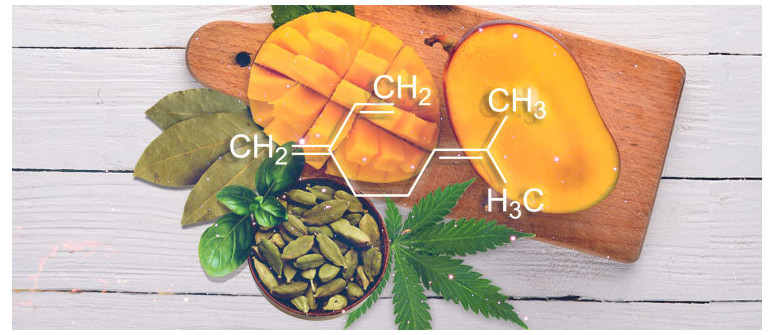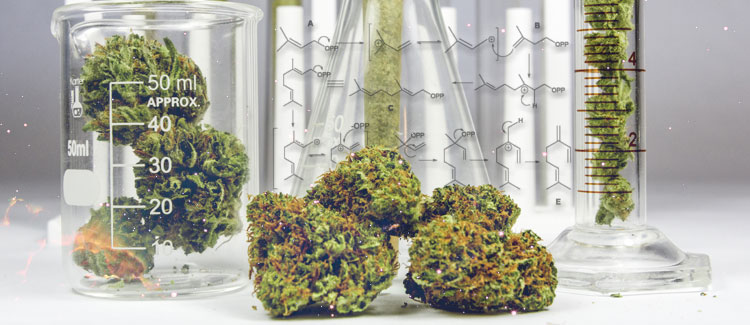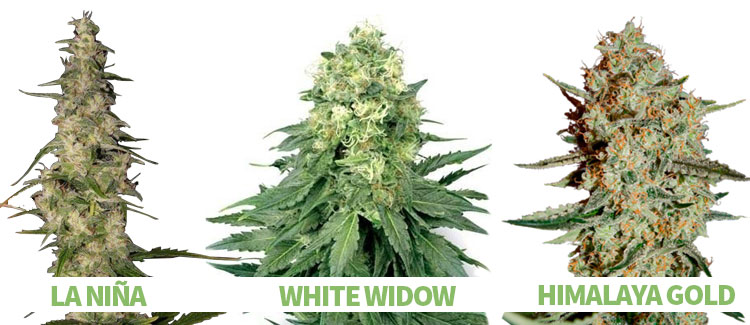Terpene profile: myrcene

The cannabis plant is rich in a variety of terpenes, aromatic molecules that give different strains their unique scents. Myrcene is a particularly interesting terpene that has been studied for its medicinal applications.
Myrcene is one of the more well-researched terpenes of the cannabis plant. This naturally occurring organic hydrocarbon is also found in herbs and fruits such as lemongrass, mangos, sweet basil, hops, parsley, and wild thyme. Due to its potent scent, the terpene is also widely used in the fragrance and flavor industries.
Although much of the focus revolving around cannabis is on cannabinoids, terpenes have been found to sustain profound effects on humans. They are known to alter the psychoactive effects of a strain, augment the medicinal impact of cannabinoids, and also provide their own array of therapeutic applications.
Myrcene is thought to contribute toward more sedative and relaxing highs, and could be the reason why indica-dominant strains often produce these effects. The terpene is common within many cannabis strains, and has been shown to make up around 50% of the total terpene count within some varieties.
Moreover, myrcene is thought to enhance the ability of THC to pass through the blood brain barrier; this topic has led many cannabis enthusiasts to eat myrcene-rich mangos during a smoke session in attempt to enhance the psychoactive effects of the herb.
WHAT ARE THE EFFECTS AND POSSIBLE MEDICAL BENEFITS OF MYRCENE?
As well as being known for its sedative effects, myrcene has been studied for its medicinal qualities. The therapeutic potential of myrcene lies in its analgesic, antibacterial, antidiabetic, anti-inflammatory, anti-insomnia, antiproliferative, antipsychotic, and antispasmodic actions.
The terpene also plays a vital role in forming the antibiotic potential of other terpenes.
THE SCIENCE BEHIND MYRCENE

A 2011 paper published within the British Journal of Pharmacology discusses a phenomenon known as the entourage effect, or the ability of molecules within cannabis to enhance the effects of each other.[1] In particular, terpenes appear to synergize with cannabinoids to boost some of their medicinal actions. Myrcene has been found to boost the sedating properties of THC, the painkilling action of both CBD and THC, and work with CBD to block inflammation.
A 1991 paper published in the Journal of Ethnopharmacology administered a lemongrass infusion to mice and found a dose-dependant painkilling effect.[2] It was found that myrcene was the major analgesic component of the essential oil of lemongrass. The authors of paper state that terpenes such as myrcene may be involved in the development of a new class of analgesics with a different action from aspirin-like drugs.
A 2007 paper documents a study that tested the effects of terpenes myrcene and thujone on rats with diabetes.[3] This study displayed the hypoglycemic (blood sugar lowering) effects of both terpenes. A 4-week treatment using these molecules in rats produced a pronounced hypoglycemic effect in diabetic rats, but not normal rats, most likely via an extra pancreatic effect.
MYRCENE-RICH CANNABIS STRAINS

Those who prefer a slightly sedative edge to their herb will definitely enjoy myrcene-rich strains. Here are a few of the top choices:
- La Nina: This hybrid variety is loaded with THC and induces a relaxing yet uplifting high. These effects are augmented by scents and flavors of citrus and other fruits.
- White Widow: This legendary strain is high in myrcene. She produces resin-coated buds that produce THC levels of between 20–22%. Her intense terpene profile produces smells and flavors of sweetness, pine, spice, and fruits. She offers euphoric, talkative, uplifting, and potent effects.
- Himalaya Gold: This beauty is an indica-dominant lady that features 70% indica genetics and 30% sativa genetics. She offers comparatively low levels of THC at around 12–13%, providing gentle, subtle, and clear effects. She also boasts stunning flavors and smells of earth, herbs, and spice.
- ^ British Journal of Pharmacology, Taming THC: potential cannabis synergy and phytocannabinoid-terpenoid entourage effects, retrieved January-09-2019
Link - ^ NCBI, Myrcene mimics the peripheral analgesic activity of lemongrass tea., retrieved January-09-2019
Link - ^ Theses, The effect of thujone and myrcene on diabetes mellitus in albino rats , retrieved January-09-2019
Link
.jpg)
.jpg)

.jpg)
